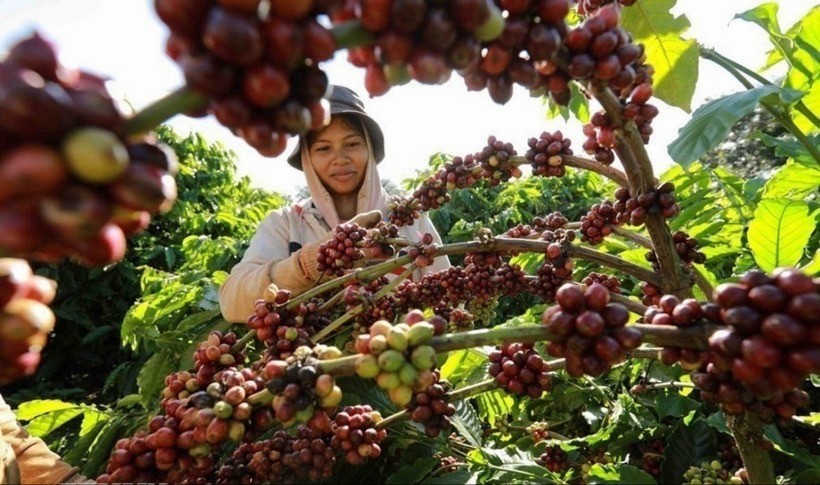
With more than 90% of output serving export, the Vietnamese coffee industry has deeply integrated with the international market; in which the European Union (EU) is the largest consumer market, accounting for about 40% of total coffee exports.
However, along with opportunities come increasingly stringent requirements from import markets, especially regarding the environment and sustainable development.
The EU Deforestation Regulation (EUDR), expected to come into effect by the end of 2025, is posing a major challenge to the Vietnamese coffee industry, especially the more than 600,000 farming households - the force that accounts for 95% of output.
EUDR requires that agricultural and forestry products, including coffee, imported into the EU must ensure that they do not cause deforestation or forest degradation after December 31, 2020, fully comply with the laws of the producing country and can be traced back to each plot of land. In this context, the role of farmers becomes particularly important.
However, the majority of coffee growers still face many barriers in meeting the requirements of the EUDR. A survey conducted in early 2025 by Forest Trends and Tavina with 95 households in key provinces showed that more than 50% of households do not keep records during the harvesting stage.
On average, each household owns 1.9–2.3 hectares of coffee, often divided into 2–3 small, scattered plots. The small and scattered land size makes tracing the origin of each plot complicated.
One of the major obstacles is the legality of land use rights. The rate of households without land use rights certificates is still high, especially among ethnic minorities.
Many areas of land have been stably cultivated for generations but have not been confirmed by the government, leading to the inability to prove legality - a prerequisite for traceability.
Although up to 96% of the surveyed plots were cultivated before 2020 (meeting the condition of no deforestation), without a legal basis, these areas are still not eligible for inclusion in the EUDR compliance dossier.
According to Mr. To Xuan Phuc, Director of the Forest Policy, Finance and Trade Program of Forest Trends, without specific support mechanisms for traceability at the household level, many current producers are at risk of not meeting EUDR requirements and being excluded from the coffee export supply chain to the EU.
Mr. Phuc said that although the survey only reflects a small part and does not fully represent the entire coffee growing households, the information collected allows to identify some important aspects in household production practices, thereby comparing them with the requirements of EUDR.
According to the survey, only about 10% of households separate supply flows between gardens, these are mainly households participating in sustainable coffee models linked with businesses.
This shows the importance of the support from purchasing, processing and exporting enterprises, not only as a market bridge but also as a need to consider farmers as an inseparable part of the business model, thereby investing and supporting households in traceability and law compliance.
According to Dr. Nguyen Trung Kien, Department of International Cooperation, Ministry of Agriculture and Environment , since the EUDR was in the draft stage (one year before its promulgation), relevant parties in Vietnam have proactively approached and sought information with support from the EU Delegation to Vietnam. When the EUDR was officially promulgated, the Ministry issued an action plan and directed provinces to implement it.
Many localities have also developed their own plans to disseminate regulations down to the commune level. Thanks to the coordination between the government, businesses, industry associations and farmers, Vietnam is classified by the EU as a “low risk” group in terms of EUDR compliance - a significant competitive advantage compared to countries such as Indonesia or Brazil (standard risk group).
However, being classified in the low-risk group does not mean being exempted, Vietnam must still fully comply with the requirements in the regulations.
Dr. Nguyen Trung Kien added that the EU does not require households to have land use right certificates but requires proof that the land is legal.
Verifying each individual plot of land would be time-consuming and overload the commune level, so it is possible to consider the option of verifying at the regional or area scale - a more flexible and feasible solution.
Recently, the Ministry of Agriculture and Environment has coordinated with the EU, industry associations, and international organizations such as IDH, Forest Trends, etc. to communicate and guide relevant parties.
Many businesses such as Cienco, Vinh Hiep, Intimex... have been proactively building traceability systems and collecting data from farmers.
Vietnam is at the forefront of adapting to the EUDR, however, to maintain its advantages and access the EU market sustainably, it is necessary to continue to improve the data system and forest land boundary maps, build a unified traceability platform, ensure sustained resources and strengthen coordination among stakeholders.
According to Mr. Bach Thanh Tuan, representative of the Vietnam Coffee - Cocoa Association, before the EUDR was issued, more than 30% of the 4C, UTZ, Rainforest coffee growing area in Vietnam had achieved sustainable certifications such as 4C, UTZ, Rainforest Alliance... This is a favorable foundation for the Vietnamese coffee industry to quickly adapt to the new regulations.
Mr. To Xuan Phuc emphasized that although not all households in the coffee industry directly export to the EU, traceability is gradually becoming a mandatory requirement of major markets.
This requires farmers to change their farming methods towards traceability. These changes not only require investment in time and effort but also require support from the business community and state management agencies.
Faced with these difficulties, experts recommend the early development of simple, accessible support tools for farmers, such as crop record books, pre-printed forms for product sales, or user-friendly mobile applications.
At the same time, local authorities need to have a mechanism to confirm the legality of households that are using land stably but do not have land use right certificates.
This is an urgent solution to help households continue stable production and protect the supply chain from interruption.
Complying with the EUDR is not only a requirement to maintain market share in the EU, but also an opportunity for Vietnamese coffee to restructure towards greater transparency, sustainability and environmental responsibility - an inevitable step towards deeper integration into the global value chain.
Source: https://baolaocai.vn/ca-phe-viet-truoc-thach-thuc-tu-quy-dinh-chong-mat-rung-cua-eu-post878630.html




![[Photo] Da Nang: Hundreds of people join hands to clean up a vital tourist route after storm No. 13](https://vphoto.vietnam.vn/thumb/1200x675/vietnam/resource/IMAGE/2025/11/07/1762491638903_image-3-1353-jpg.webp)





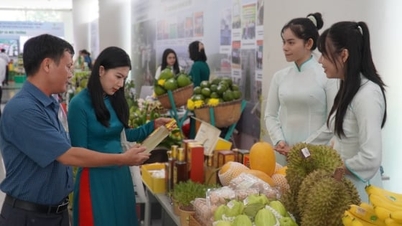

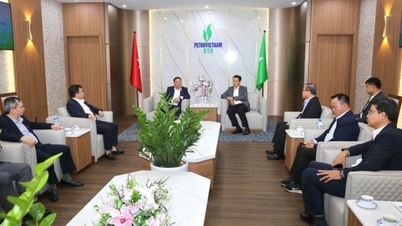
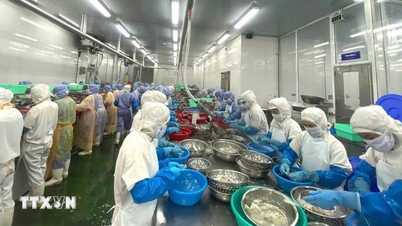

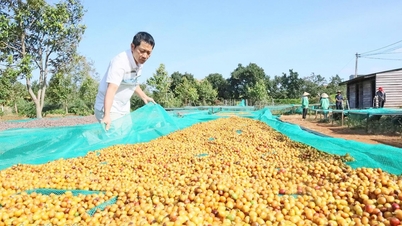

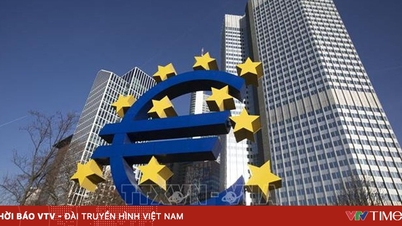





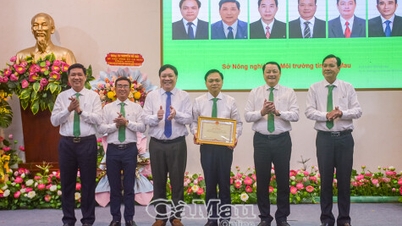











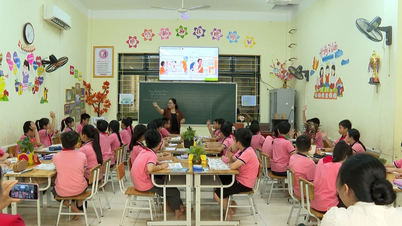

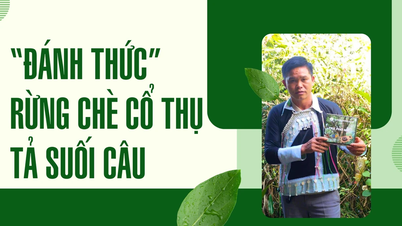
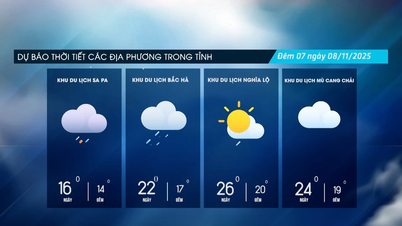





















































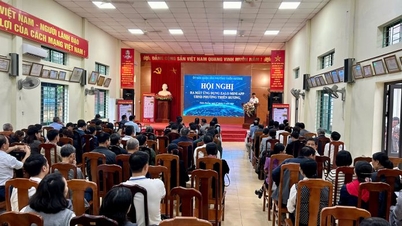















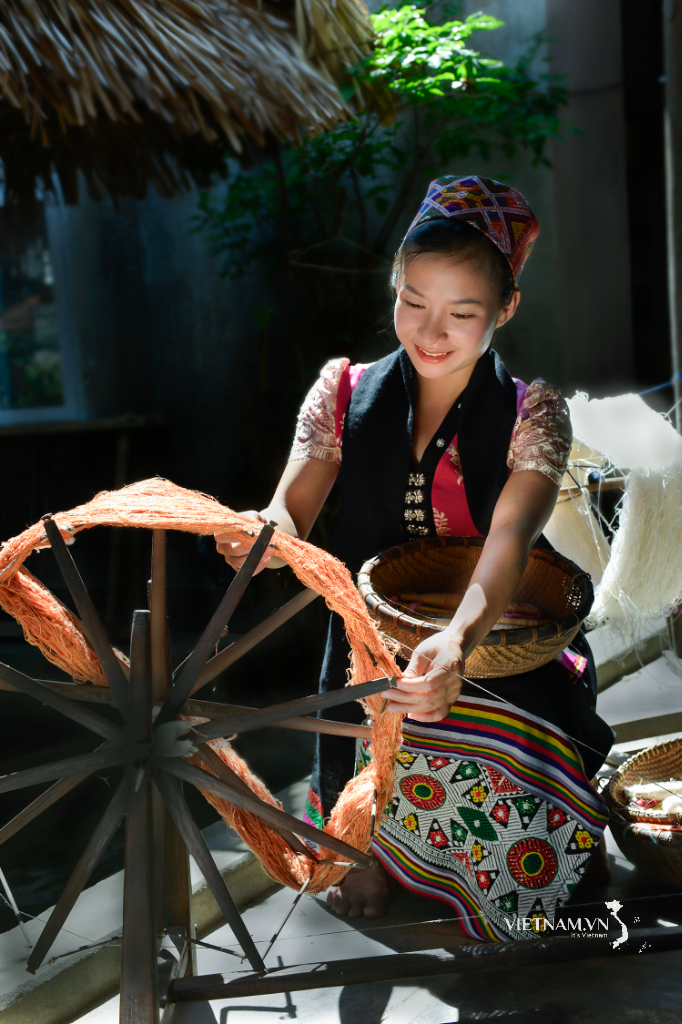



Comment (0)